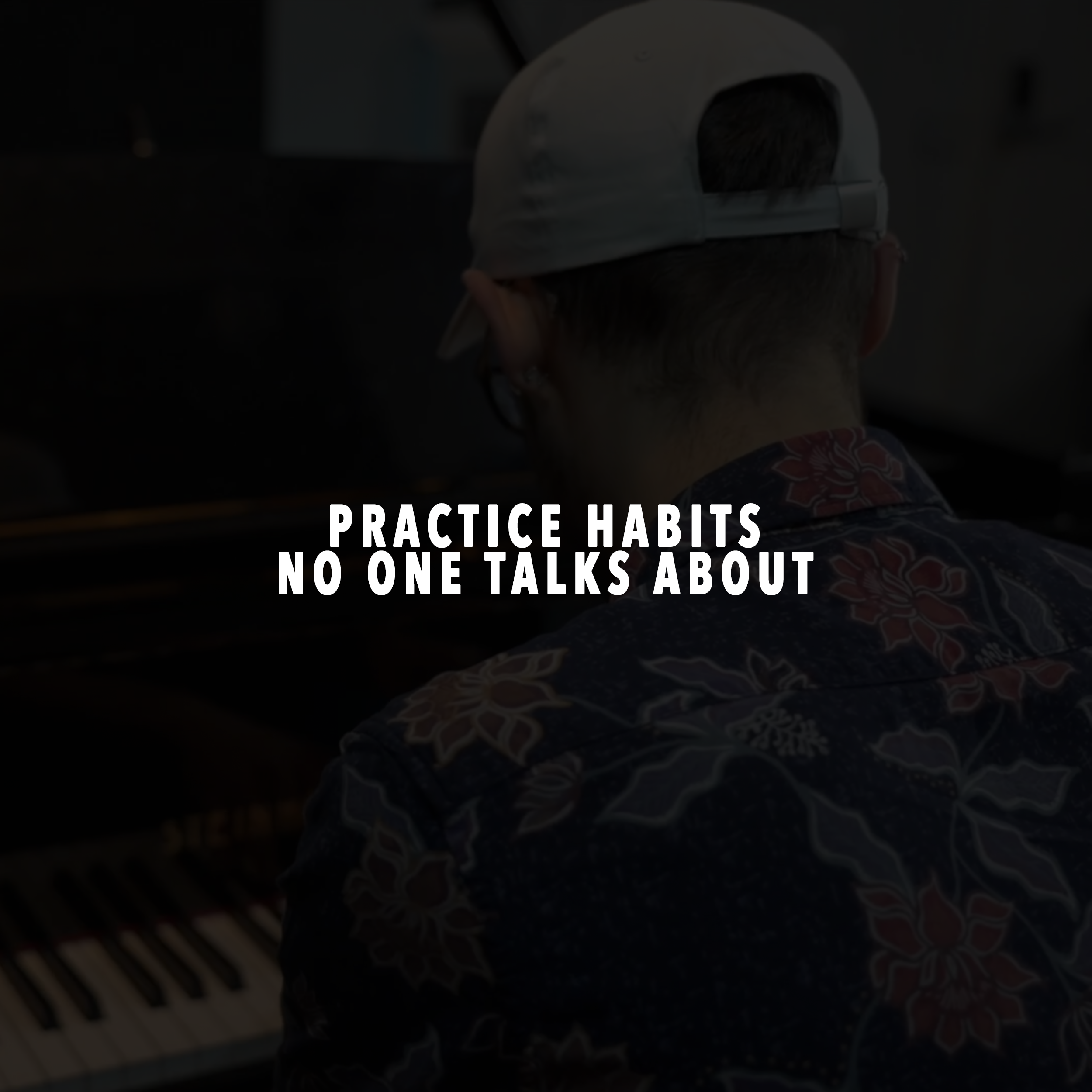
The Most Important Practice Habit No One Talks About
When I was much younger, I believed that practising more always meant more improvement. So much so that I lived by the thought, “If I’m not practising, then someone else is, and they are getting better than me.” Clearly, I wasn’t competitive at all!

Why Most Musical New Year’s Resolutions Fail (and What Actually Works)
It’s pretty widely known that around 80% of New Year’s resolutions fail before reaching February. However, what is less widely known is why!

Why Your Playing Sounds Better at Home Than in Lessons or Recordings
For many players there is a big difference between what you can do in practice by yourself and what you can do when a teacher or an audience is watching. At home, you are relaxed and not “performing”, whereas when you are in a lesson or a performance your brain shifts from a more exploratory, creative mode to a preservation and performance mode. I too have experienced this many times and I also used to say in my lessons, “I played this better earlier.”

Why You Shouldn’t Leave the Ending of a Piece Until Last
One of the most impactful techniques I use when both practicing myself and teaching students is to approach a piece from both ends. Early on in my playing career I would typically start a piece at the beginning and slowly but surely work my way to the end of the piece bar-by-bar. However, a teacher of mine once suggested learning the final phrase of the piece of music and working backwards one phrase at a time as well. Now, this is a fundamental part of how I approach a piece of music.

Why You Forget Pieces You Used to Know
Over the course of my playing career, I’ve learnt hundreds of pieces to a performable level. Yet, if you asked me right now to play even a handful of those pieces in a performance, I would inevitably make a big mess of it! There are even some pieces that I have recordings of, but I can’t remember learning them and looking at the sheet music feels like seeing a new piece for the first time.

How Does Music Sound Scary?
With Halloween weekend having just happened, what better time to talk about what makes music sound scary! Most people’s experiences (including my own) of scary music are usually related to film (although not exclusively). Having said that, there have also been many pieces that were originally stand alone pieces but later popularised by horror movies.

How to Arrange Any Song for Piano
As a teenager, I often played the piano in bands. I played the guitar and piano in a jazz band (not simultaneously), and I often played in various pop/rock bands for events. However, at that time there wasn’t an easy way to quickly find sheet music for the songs I wanted to learn, and even if there was, I would have been terrible at reading it! So I needed to find a way of playing the songs on the piano with very little information, sometimes by just listening to the song, other times by working from just the chord chart.

When Slow Practice Works Better Than Fast Practice
When I was 11, much of my music learning was focused on what would make me look cool and impress people. I hadn’t yet had a piano lesson and so I was just teaching myself some hard pieces by listening to them and occasionally trying to decipher some notation. The aim was always to go into school the next day and play obnoxiously loud in a practice room with the door open so people really knew I was the coolest guy around.

Why Rhythm is Harder to Learn Than Notes
In 2019, I was on the music education front lines. I spent the vast majority of my week teaching lots of students, and my music school had hundreds of students attending various music lessons each week. There were lots of students at any one time hoping to take their instrumental exams, and so each term/semester I would run mock exam sessions where I would spend the weekend examining students (both my own and other teachers’ students)…

The Truth About Your “Weaker” Hand at the Piano
Over the years I have heard perhaps thousands of times that a player feels like they have a weaker hand when playing the piano. It’s often the left hand that feels weaker (although not always), and it will often be attributed to being right-handed (if the player is right-handed). If they aren’t, then usually I hear that their right hand is stronger because they’ve used it more…

Why Good Playing Breaks Down in Performance
In 2010–2012, as well as playing the piano, I also had a fascination with playing fingerstyle guitar. I had watched guitarists such as Andy McKee, Don Ross, and Tommy Emmanuel and thought that their playing was “pretty sick” (in the good sense). So I spent far too many hours teaching myself some of their songs and arrangements…
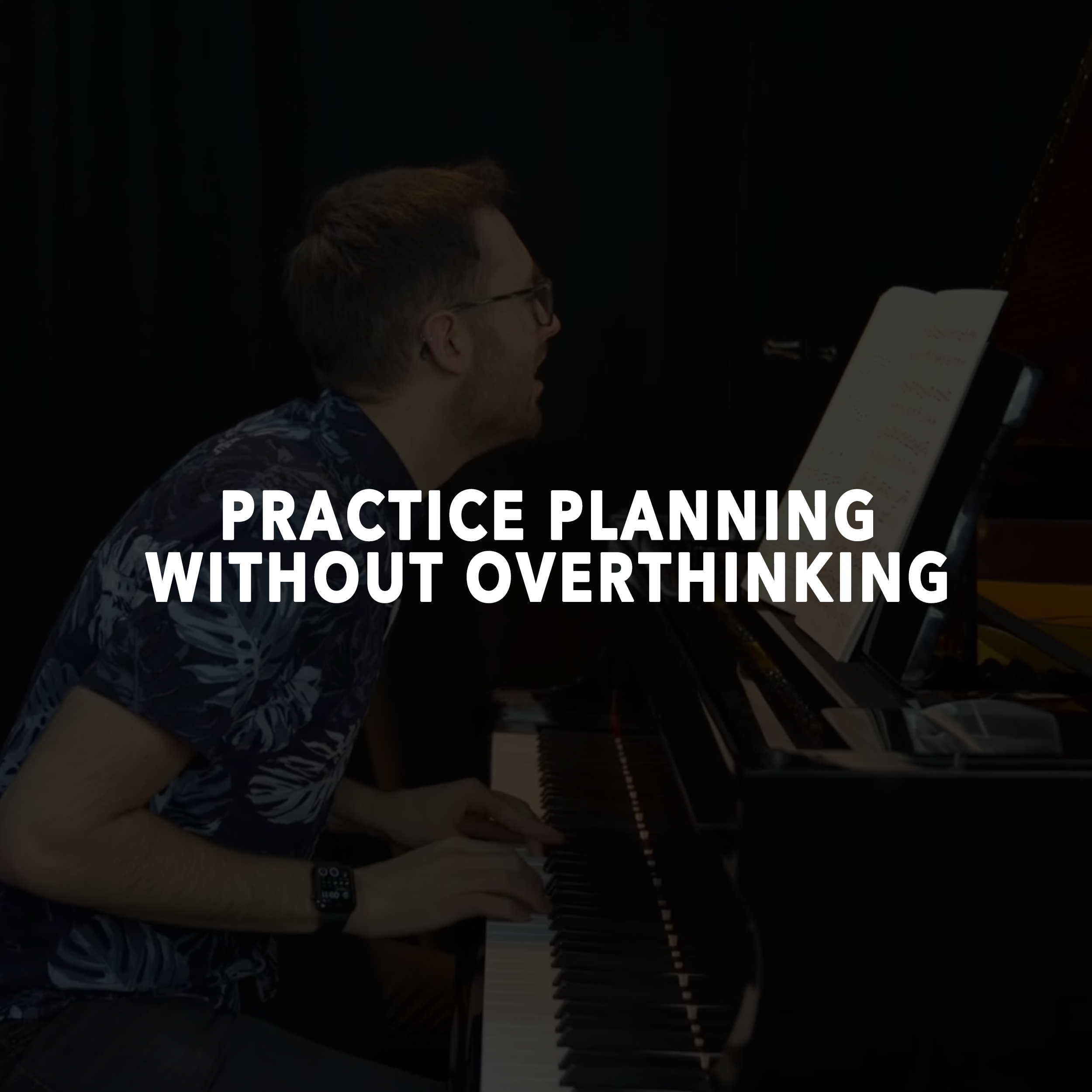
Practice Planning Without Overthinking
Many times in these “Monday Music Tips” I have mentioned how I managed to dramatically decrease the amount of time I was practicing during my time at the music conservatory. I created my own planning book that allowed me to time block the specific things I needed to get done within a practice session…
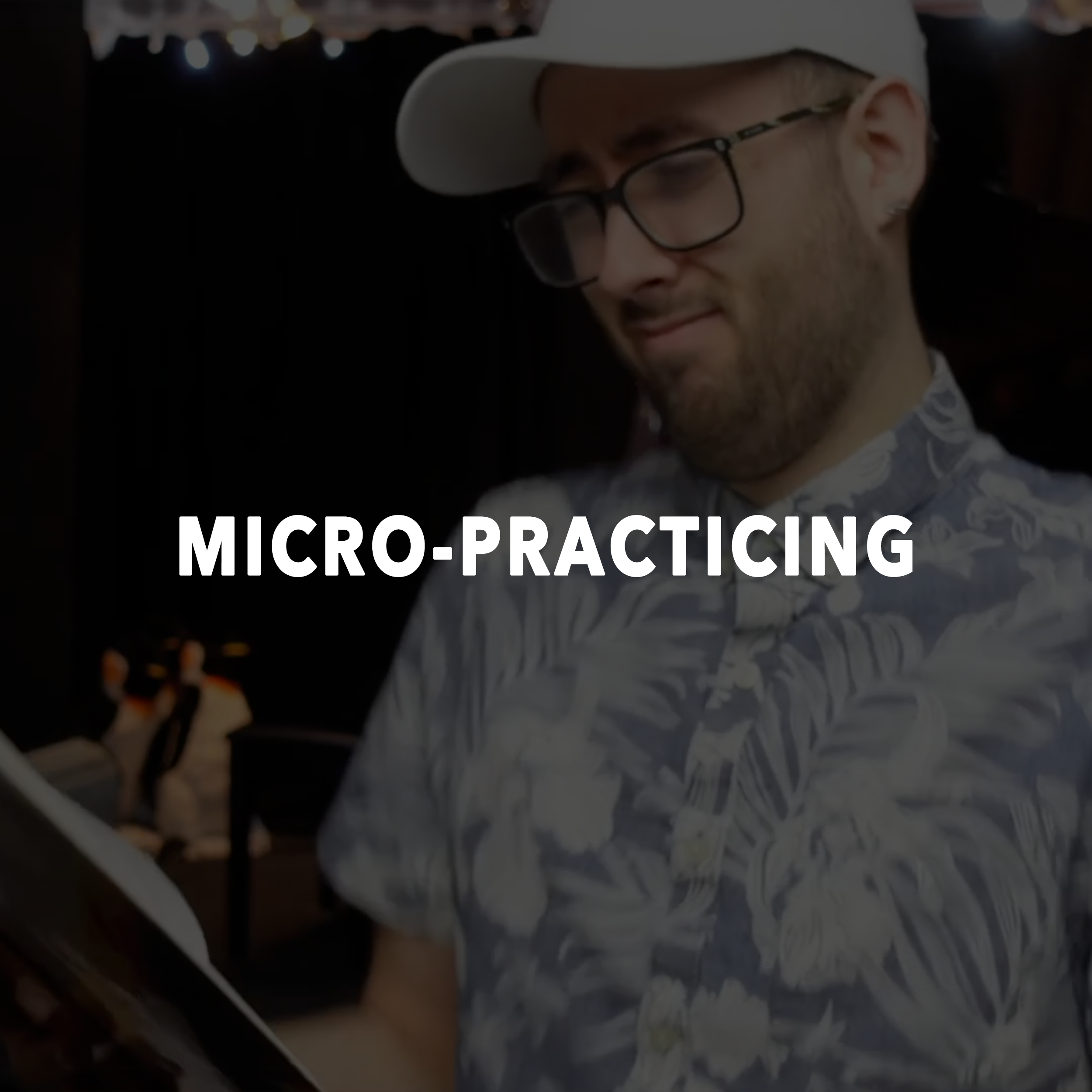
Micro-Practicing: How to Make Progress in Just 5 Minutes
For many players, fitting practice around life isn’t always simple. 2018 turned out to be one of the busiest years I’ve ever had. I was running a music school, juggling teachers and students who needed my attention, while also personally teaching more than 40 students each week. At the same time, I was performing far more frequently than I do today. This meant that although I definitely needed to practice, finding time to do so was much more difficult. It usually ended up happening in short bursts between lessons or whenever a teaching room happened to be free…
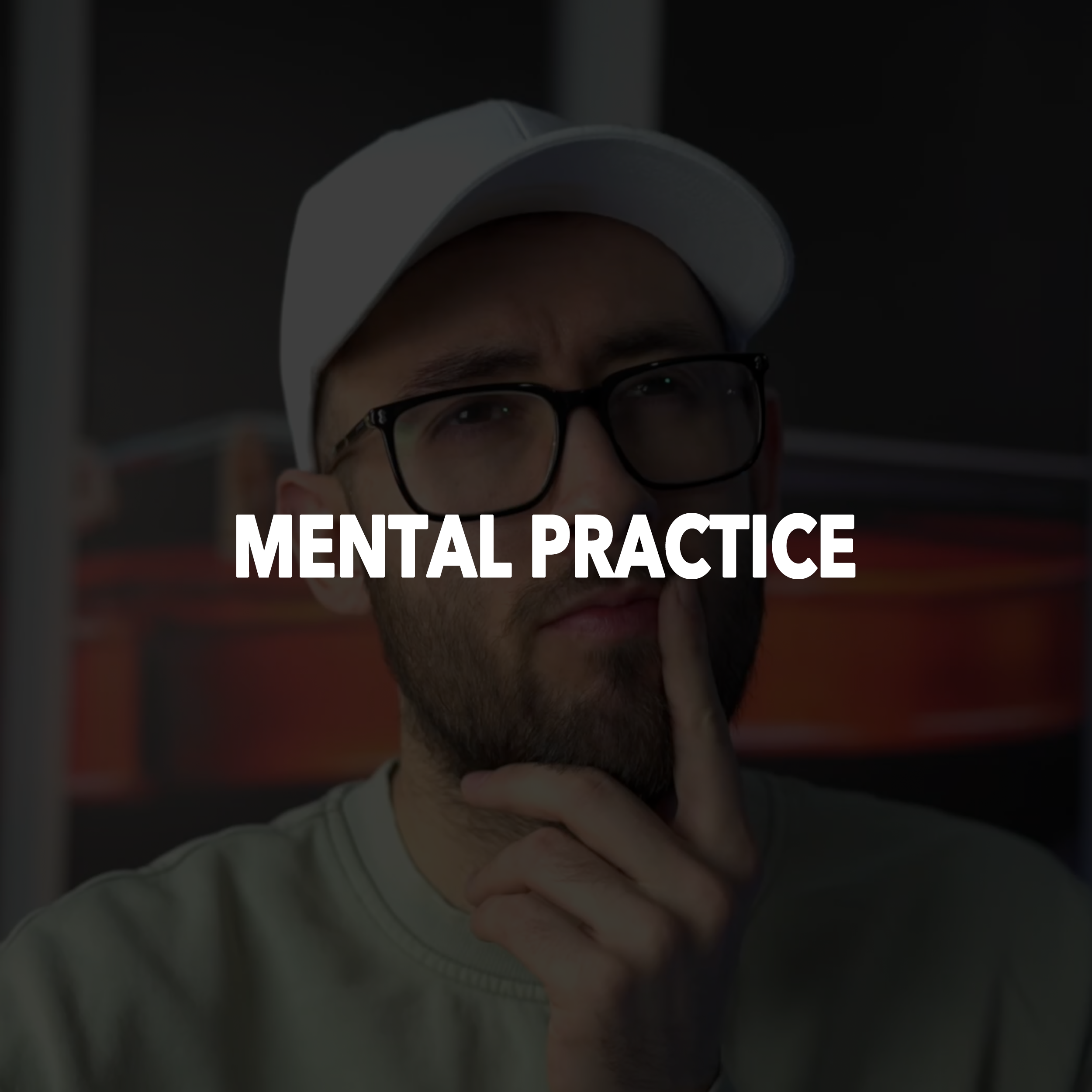
Mental Practice: Practicing Without the Keys
In 2014, I was sitting in a hotel room in Cardiff, Wales. There were only 2 hours left before an important performance where I would be playing a one hour programme from memory. Unfortunately, many hotels don’t come equipped with a piano in each of the rooms and I didn’t think it was a great idea to travel with a piano in my hand luggage…

How to Learn Chords So You Can Use Them Freely
When I first started learning the piano, I actually started by learning the keyboard, two similar but distinct instruments! I was 7 years old and I was already trying to learn the guitar and viola, so why not give myself more things to do and try to learn the keyboard as well…
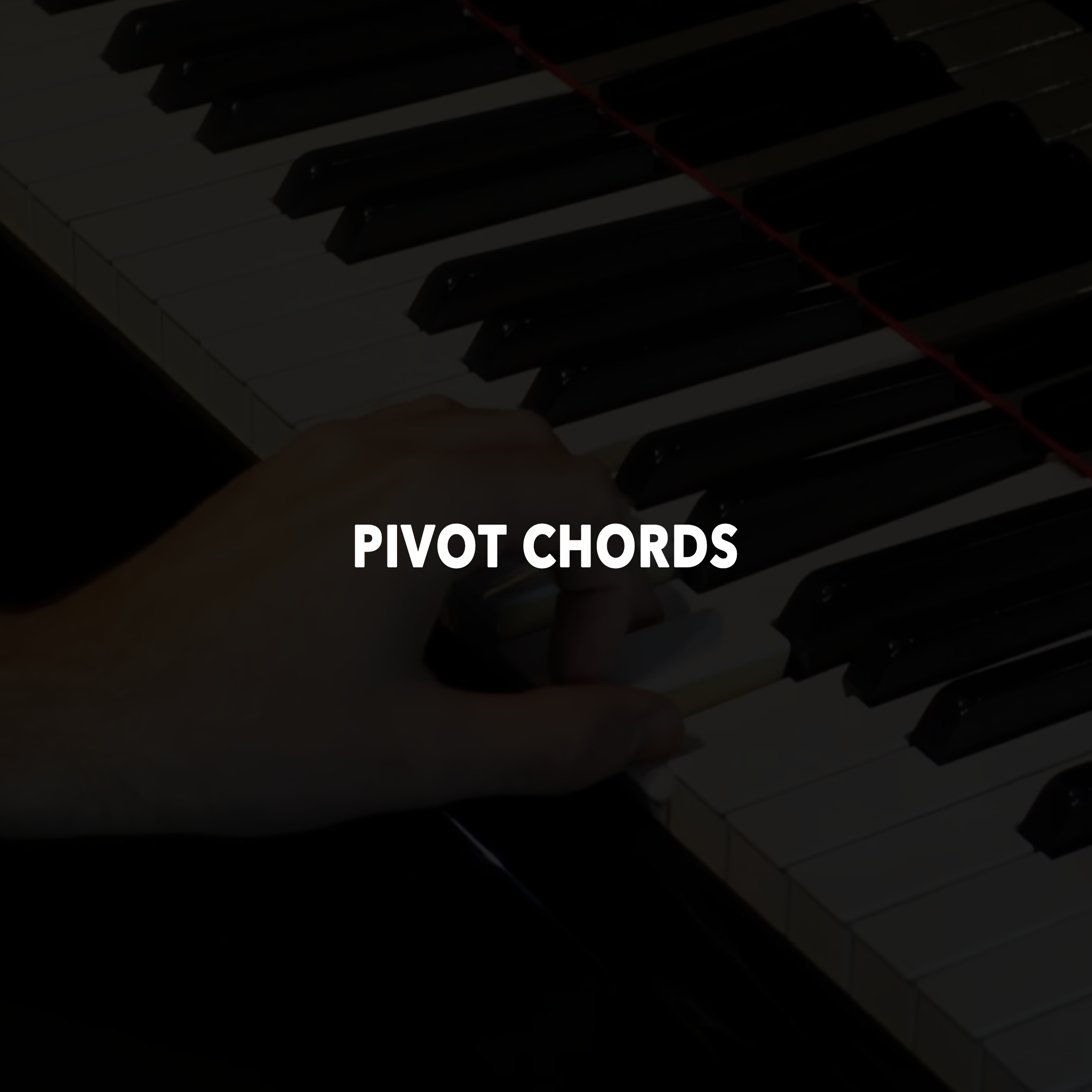
The Pivot Chord: The Easy Way to Change Key
Every piece of music (besides the weird contemporary stuff), uses a key, and not just any key, but a major or a minor key. This is because the notes in a key all have a particular relationships to one another that allow us to form chords and melodies easily without too much dissonance…

Master Any Song Faster With These Tips
Having taught the piano for the past 15 years, I’ve noticed the same common pitfalls repeatedly appear in many players’ practice. Sometimes when we are learning the piano we have to fight against our brains natural urge to take the easy option or to do the thing that requires the least mental resistance…

Why Some Chords Give You Goosebumps
Music is a unique form of art. Just by playing certain sounds in a specific order you can create a rather intense emotional reaction. This is why it is often used in movies as a kind of emotional enhancement and also why it is entertaining to go and watch an artist reproduce the music live on stage even if they aren’t doing anything visually interesting…

What Are Related Keys and Why You Should Know Them!
Related keys are an often neglected concept but appear surprisingly often within music. If a piece of music moves to a new key, the vast majority of the time it is moving to a related key. So knowing what those related keys are can really help you understand what is happening. It also opens up some interesting options if you are writing a piece of music or improvising…
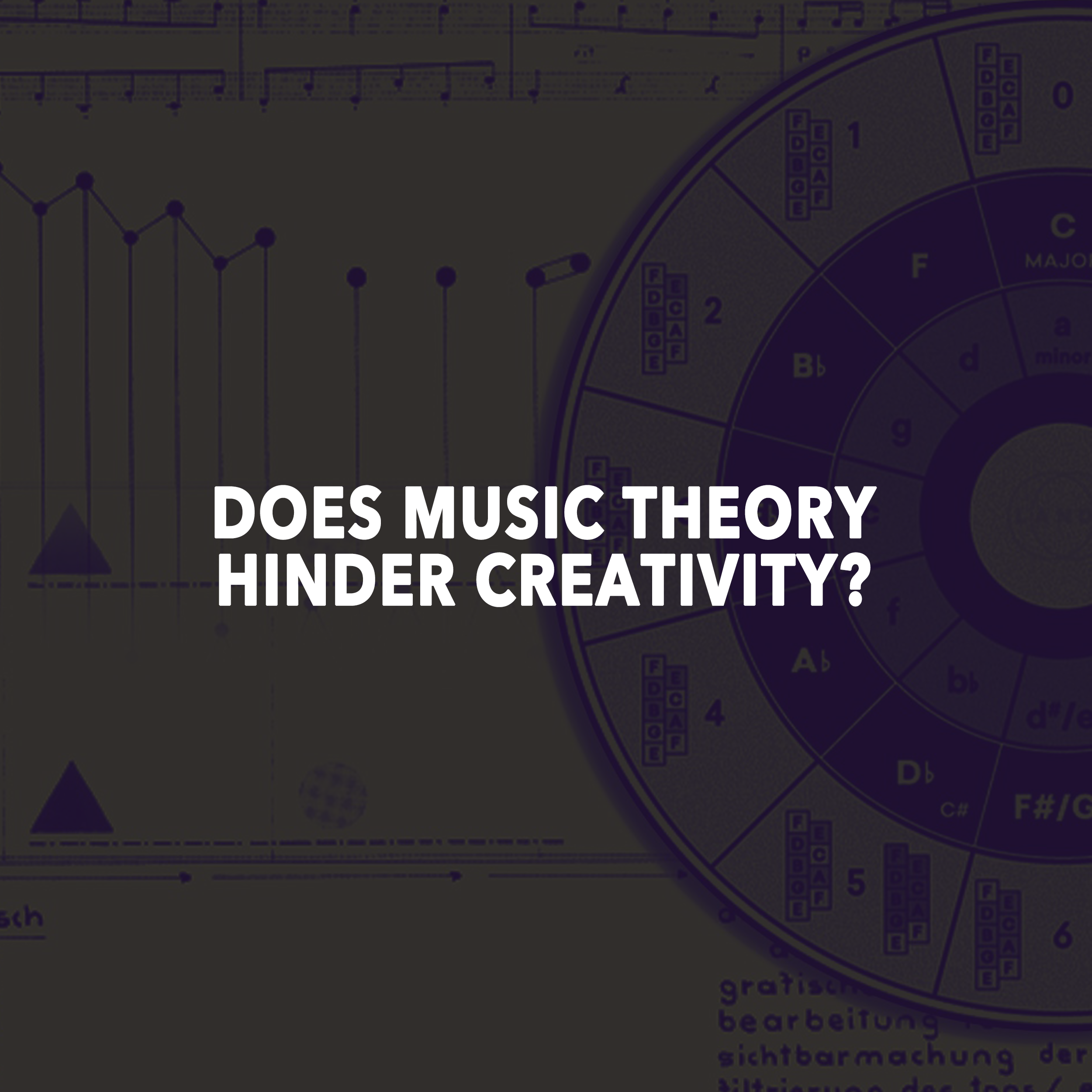
Does Music Theory Limit Creativity?
There are several different types of learners when it comes to learning an instrument. There are those that want to make sure that they don’t miss anything that could potentially be helpful to them, with the aim of becoming a holistically competent player. Then there are those that only want to know what they have to know in order to be able to do the thing that they want to do…